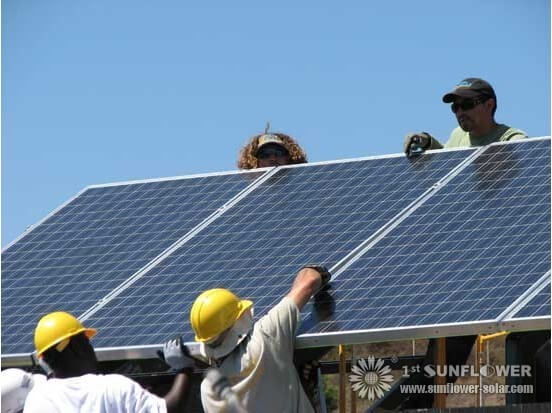Views: 0 Author: Site Editor Publish Time: 2025-01-15 Origin: Site

Introduction
Burkina Faso, a landlocked nation in West Africa, faces significant energy challenges, including frequent power outages and limited access to reliable electricity, particularly in rural areas. With abundant sunlight and increasing global interest in renewable energy, photovoltaic (PV) solar power systems are emerging as a practical and sustainable solution to address the country's energy needs. These systems offer both environmental and economic benefits, making them increasingly popular across residential, commercial, and industrial sectors.
Residential Applications
In Burkina Faso, residential use of photovoltaic systems is rapidly growing. Many households, especially in rural and semi-urban areas, are adopting small-scale PV solar setups to power basic appliances such as lighting, fans, and mobile phone chargers. Recent advancements include the integration of 100% gel-based battery storage systems, which enable reliable energy storage for nighttime use. Solar-powered air conditioners have become particularly popular in urban areas, helping residents combat extreme heat while reducing reliance on expensive and unstable grid electricity.
Commercial and Industrial Applications
For businesses, photovoltaic solar systems are proving indispensable, especially in industries like agriculture, manufacturing, and retail. Large-scale systems are used to power machinery, lighting, and cooling systems in warehouses, workshops, and processing plants. A growing number of inquiries for solar-powered ventilation systems have also been noted, with applications in warehouses, workshops, and laundry facilities. These systems enhance airflow in high-temperature environments, improving worker safety and operational efficiency.
In rural areas, solar-powered irrigation systems are transforming agriculture, enabling farmers to water crops more effectively while reducing diesel generator dependence. This shift promotes food security and cuts operational costs.
Educational and Healthcare Institutions
Schools and healthcare centers are also leveraging PV solar power to overcome energy shortages. Solar-powered lighting ensures that schools can operate during early mornings or evenings, while healthcare centers rely on PV systems for critical equipment such as refrigerators for vaccines, diagnostic tools, and communication devices.
Off-Grid and Community-Based Solutions
Off-grid photovoltaic installations have become a lifeline for remote communities without access to national power grids. Solar-powered microgrids are providing electricity to entire villages, supporting local businesses and improving living conditions. Community-based initiatives are also using solar power for public amenities, such as water pumping and street lighting.
Challenges and Future Potential
While the benefits of photovoltaic solar power are undeniable, Burkina Faso faces challenges in scaling these solutions, including the high upfront costs of installation, limited technical expertise, and a lack of robust infrastructure for system maintenance. However, with increasing governmental and international support, such as subsidies, training programs, and public-private partnerships, the future of photovoltaic solar power in Burkina Faso looks promising.
Conclusion
Photovoltaic solar power generation systems are transforming Burkina Faso's energy landscape. From households to industries and public institutions, these systems are addressing critical power needs while promoting sustainability and economic growth. With continued investment and innovation, Burkina Faso can further harness its abundant solar resources to achieve energy security and improve quality of life for its citizens.